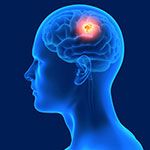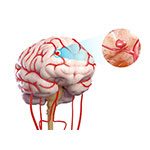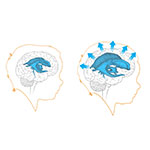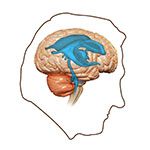Brain Tumors
A brain tumor is the growth of abnormal cells in the brain. When most normal cells grow old or get damaged, they die, and new cells take their place. Sometimes, this process goes wrong. New cells form when the body...
Aneurysm
A brain aneurysm is the ballooning of a weak area on the wall of an artery in the brain. An aneurysm can leak or rupture causing blood to escape into the brain...
Arteriovenous Malformations (AVM)
An arteriovenous malformation (AVM) is an abnormal tangle of the blood vessels that connect the veins and arteries in your brain. An AVM can develop anywhere in the body, but it is more common in the brain and spine...
Carotid Stenosis
Carotid occlusive disease, also known as carotid artery disease or carotid artery stenosis, occurs due to the deposition of plaque (fatty substances) inside the walls of your carotid (neck) arteries...
Parkinson’s Disease
Parkinson’s disease is a nervous system disorder characterized by slowness of movement (bradykinesia), tremors, and stiffness. These symptoms continue and worsen over time gradually...
Essential Tremor
A tremor is an involuntary muscle movement characterized by the shaking of a body part. A slight tremor is normally present in all of us, especially the elderly...
Dystonia
Dystonia defines a group of movement disorders characterized by slow repetitive involuntary muscle spasms and contractions. Focal dystonia is a type of dystonia in which the movement disorder is localized to one part of the body...
Epilepsy
Epilepsy is a condition caused by abnormal electrical activity in the brain that produces symptoms such as confusion, staring spells, and most commonly, episodes of involuntary shaking (seizures)...
Trigeminal Neuralgia/Hemifacial Spasm
Trigeminal neuralgia is a sharp, shooting, severe pain felt along the path of an irritated or damaged trigeminal nerve, the nerve which carries sensation from your face to your brain...
Hydrocephalus
Hydrocephalus is a condition characterized by excessive accumulation of cerebrospinal fluid (CSF) in and around the brain which can lead to brain damage. The condition can also cause developmental...
Peripheral Neuropathy
he peripheral nervous system transmits signals from the brain and spinal cord to the rest of the body. Any disruption in the normal functioning of the peripheral nervous system can result in numbness, pain, and weakness...
Pituitary Tumors
Pituitary tumors are abnormal growths within the pituitary gland, a small gland located near the base of the brain. Pituitary tumors can be either functioning or non-functioning...
Benign Brain Tumors(Including Meningioma)
Doctors group brain tumors by grade. The grade of a tumor refers to the way the cells look under a microscope. Benign brain tumors fall under grade I, where the cells appear similar to normal brain cells, and they grow slowly...













